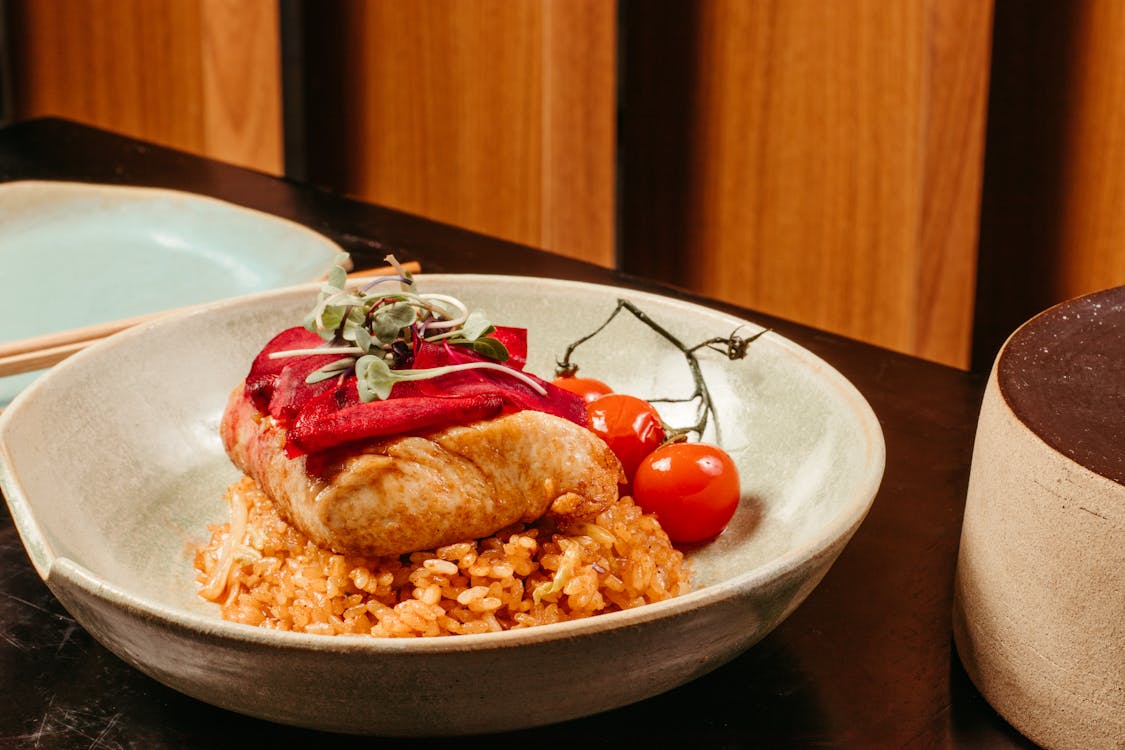Meal prepping has become a game-changer for anyone seeking to maintain a healthy diet, save time, and reduce stress during the week. Whether you’re a busy professional, a student, or a parent trying to juggle multiple responsibilities, mastering the art of meal prep can lead to better eating habits, increased energy, and less reliance on takeout or unhealthy snacks. Here’s a step-by-step guide to help you become a meal-prepping pro.
1. Plan Your Menu with Nutrition in Mind
Start by planning a balanced menu that meets your nutritional needs. Each meal should contain a mix of lean proteins, complex carbohydrates, healthy fats, and vegetables. Here are some tips for planning:
- Proteins: Include a variety of lean proteins like chicken breast, turkey, tofu, eggs, and fish.
- Carbohydrates: Opt for whole grains like quinoa, brown rice, sweet potatoes, and whole-wheat pasta.
- Fats: Include healthy fats from sources like avocados, olive oil, nuts, and seeds.
- Vegetables: Fill your meals with plenty of colorful vegetables, such as spinach, broccoli, carrots, and bell peppers.
Tip: Focus on recipes you enjoy, but don’t be afraid to try new healthy dishes. Sticking to familiar ingredients makes the process less overwhelming.
2. Create a Shopping List and Stick to It
Once you’ve planned your meals, make a shopping list that includes everything you need for the week. Having a well-organized list ensures that you don’t forget key ingredients, and it also prevents impulse purchases. Be mindful of portion sizes to avoid waste and keep the budget in check.
Tip: Organize your shopping list by sections of the grocery store (produce, meats, grains, etc.) to make your trip more efficient.
3. Choose a Meal Prep Day
Pick a day when you have a few hours free to dedicate to meal prep—Sunday is a popular choice, but any day that works with your schedule is fine. Meal prepping doesn’t have to take all day; once you establish a routine, you’ll find ways to streamline the process.
Tip: Start small. If prepping an entire week’s worth of meals sounds overwhelming, begin with prepping just lunches or dinners for a few days and gradually build up.
4. Invest in Quality Storage Containers
Having the right containers is essential for keeping your meals fresh and organized. Invest in airtight containers, preferably glass or BPA-free plastic, that are microwave and freezer safe. Look for a variety of sizes to accommodate different meals and snacks.
- Portion control: Pre-portion your meals in individual containers to prevent overeating and make grab-and-go meals easy.
- Labeling: Use labels or markers to note what each container holds and the date it was prepped.
Tip: Clear containers help you easily identify what’s inside without opening them.
5. Batch Cook and Multitask
To maximize your time in the kitchen, cook multiple components at once. For example, roast vegetables in the oven while a batch of quinoa simmers on the stove, or use a slow cooker to make a big batch of protein while you prep salads or chop vegetables.
- Batch cooking: Cook large portions of items like rice, beans, or chicken, which you can easily mix and match throughout the week.
- Multitasking: While one dish cooks, prepare other ingredients like washing greens, slicing fruit, or portioning snacks into containers.
Tip: Use kitchen tools like a rice cooker, food processor, or slow cooker to save time.
6. Variety is Key
One of the challenges with meal prep is avoiding the monotony of eating the same meals every day. Incorporate variety by preparing different proteins, vegetables, and seasonings that can be mixed and matched throughout the week.
- Flavor variety: Use different spices, marinades, or sauces to keep things interesting. For example, grilled chicken can be flavored with a variety of herbs and spices—lemon and pepper one day, and garlic and paprika the next.
- Switch it up: Prep base ingredients like grains and veggies that can be repurposed in multiple ways. For instance, roasted sweet potatoes can be served with scrambled eggs for breakfast or with grilled chicken for dinner.
Tip: Plan meals with similar ingredients but different flavors to prevent food fatigue.
7. Focus on Snacks and Breakfasts, Too
Don’t forget about prepping snacks and breakfasts. Having healthy, ready-to-go snacks like cut-up veggies, fruit, or trail mix can prevent you from reaching for processed junk food. Prepping breakfasts like overnight oats, chia pudding, or egg muffins makes mornings smoother and ensures you start the day with a nutritious meal.
Tip: Pre-portion snacks like nuts, hummus, and yogurt into small containers for easy access.
8. Store Meals Properly
Proper storage is crucial for keeping your food fresh throughout the week. Refrigerate meals you plan to eat within 3-4 days, and freeze anything you’ll eat later in the week. Frozen meals can be thawed overnight in the fridge for a hassle-free dinner.
- Refrigeration: Store fresh meals at the correct temperature to avoid spoilage. Most prepared foods should be eaten within 3-4 days.
- Freezing: Meals like soups, stews, and casseroles freeze well and can last for months. Be sure to allow room for expansion in containers before freezing.
Tip: Label frozen meals with the date they were prepared to easily track freshness.
9. Reheat and Enjoy
When it’s time to eat, simply reheat your meals and enjoy! Using microwave-safe containers makes the process even quicker. For frozen meals, thaw them overnight in the fridge to reheat faster the next day.
Tip: Experiment with reheating techniques. While the microwave is convenient, using the stovetop or oven can help retain texture and flavor for certain meals.
10. Evaluate and Adjust
After a week of meal prep, reflect on what worked well and what didn’t. Were your portions correct? Did you have enough variety? Did you enjoy the meals? Use this feedback to fine-tune your approach for the following week.
Tip: Keep a list of favorite recipes or meal combinations to rotate in future weeks for easier planning.
Conclusion
Mastering the art of meal prep doesn’t happen overnight, but with practice and a few kitchen hacks, you’ll soon become a pro at prepping healthy, delicious meals for the week. By investing a few hours upfront, you’ll save time, reduce stress, and ensure that you stay on track with your nutrition goals. Meal prep is more than just a trend—it’s a sustainable approach to healthy eating that makes life easier and more enjoyable.

